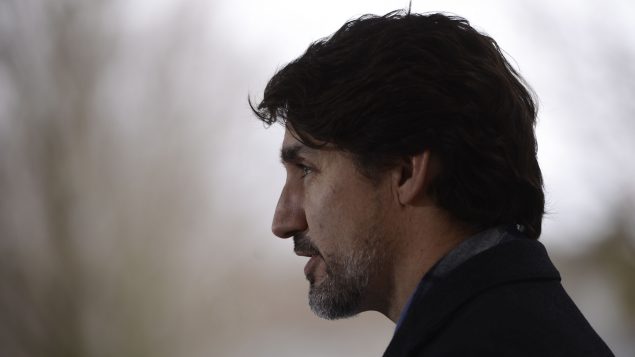Prime Minister Justin Trudeau has announced $9 billion in financial aid for post-secondary students and recent graduates feeling the economic impact of the coronavirus pandemic, amid criticism that young Canadians were left shortchanged by Ottawa’s existing emergency funding programs.
Speaking at his daily briefing in Ottawa, Trudeau said the proposed Canada Emergency Student Benefit would provide $1,250 per month to students and new graduates who are not eligible for the Canada Emergency Response Benefit.
Students looking after disabled relatives or those who have a disability themselves will be eligible for $1,750 per month.
The benefit would be available from May to August 2020.
Post-secondary students currently in school, planning to start in September, or those who graduated in December 2019 are eligible.
Students could also continue working part-time and earn up to $1,000 and still receive this new benefit, Trudeau said.
The federal government is creating 76,000 jobs for young people, in addition to the Canada Summer Jobs (CSJ) program, he said.
“These placements will be in sectors that need an extra hand right now, or that are on the frontlines of this pandemic,” Trudeau said.
The changes to the CSJ, announced by Trudeau on Apr. 8, included a boost to the wage subsidy of up to 100 per cent to help businesses cover the cost of hiring students; an extension of the end date for employment to Feb. 28, 2021 and the inclusion of part-time student jobs.
The government has earmarked $263 million in funding for the CSJ program in 2020. The funding is expected to help create up to 70,000 jobs for young Canadians, the government said.
In addition, students who volunteer to do national service in the fight against the pandemic will be eligible for up to $5,000 in new Student Service Grants depending on the hours they worked, Trudeau said Wednesday.
“Your energy and your skills can do a lot of good right now,” Trudeau said.
The federal government will expand existing federal employment, skills development, and youth programming to create up to 116,000 jobs, placements, and other training opportunities to help students find employment and develop valuable skills, Trudeau said.
Ottawa will also double the Canada Student Grants for all eligible full-time students to up to $6,000 and up to $3,600 for part-time students in 2020-21. The Canada Student Grants for Students with Permanent Disabilities and Students with Dependents would also be doubled.
In addition, in recognition that many families are struggling financially, the government is broadening eligibility for student financial assistance by removing the expected student’s and spouse’s contributions in 2020-21.
The Canada Student Loans Program will bump up the maximum weekly amount that can be provided to a student in 2020-21 from $210 to $350.
Ottawa plans to offer additional compensation for Quebec, the Northwest Territories, and Nunavut that operate their own student financial assistance programs.
And the federal government will increase existing distinctions-based support for First Nations, Inuit, and Métis Nation students pursuing post-secondary education by providing an additional $75.2 million in 2020-21.
“And for student researchers and graduate students, we’re going to invest over $291 million to extend scholarships, fellowships, and grants to make sure you can keep working,” Trudeau said.
“Depending on your funding, it will be extended by either three or four months.”







For reasons beyond our control, and for an undetermined period of time, our comment section is now closed. However, our social networks remain open to your contributions.